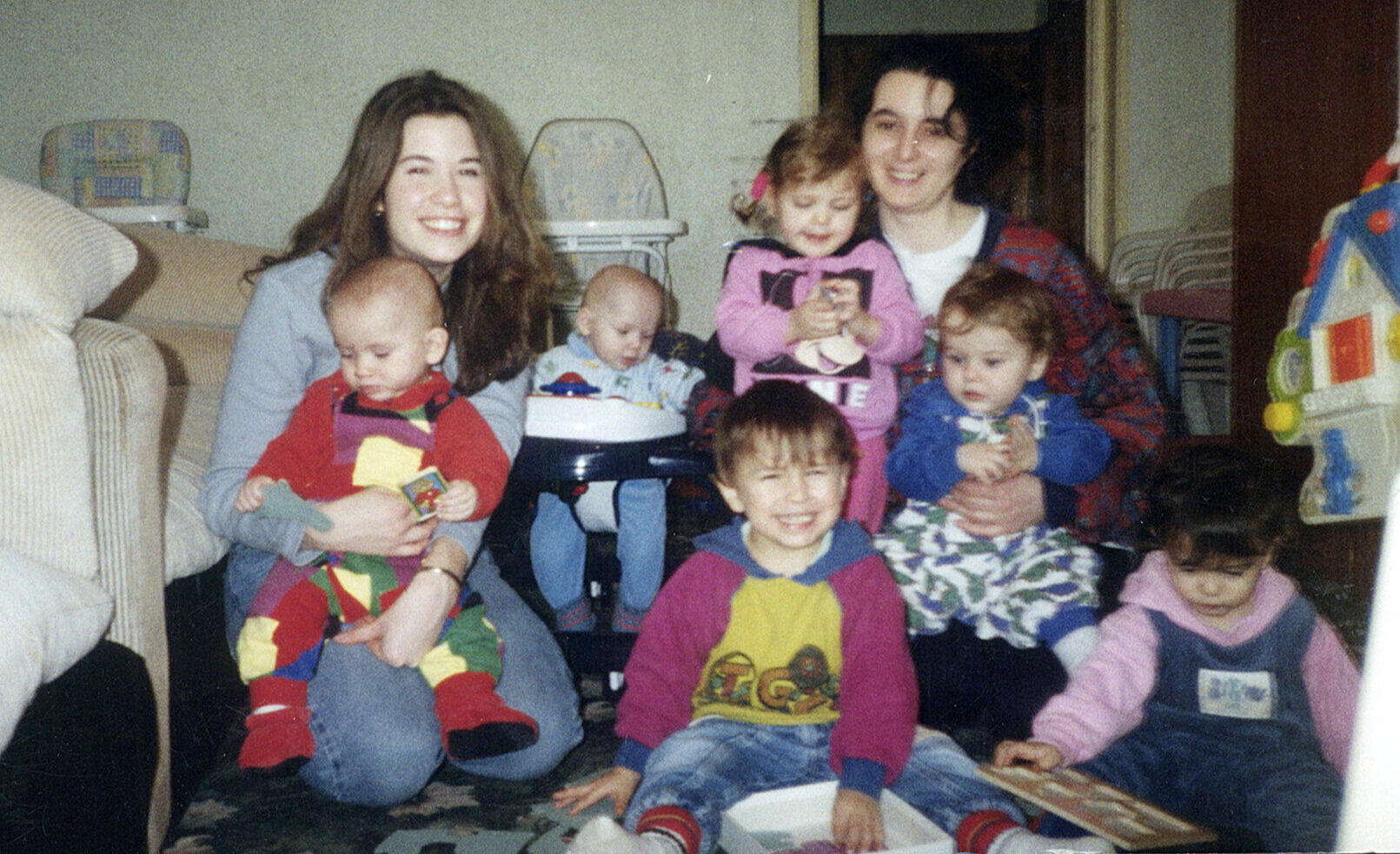The first baby Corina brought home in 1996. (She was adopted in Romania and is now happily married with two children.)
by Jayme Metzgar
The first time I ever held an abandoned baby, it was 1996, during my first trip to Romania. A friend had driven me out to an apartment block on the southern edge of town. The building rose drearily against the winter sky, indistinguishable from every other apartment block in the city. But inside, I met a woman who would change my life.
Corina Caba was then 25 years old. She sat on the floor of her small living room—slender, dark-haired, and sleepy-eyed—surrounded by babies. There were seven infants living with her at the time, ranging in age from six weeks to twelve months old. Each one had recently left the children's hospital, arriving in various stages of neglect and malnourishment. Each one was recovering under Corina's care. Each one was bound for an adoptive family.
The early years, in Corina’s apartment.
That was the beginning of the partnership that is now Romania Reborn. Things were different then. Domestic adoption was almost unheard of. The national infrastructure was still in a post-Communist shambles. Every abandoned Romanian child was vulnerable, forgotten. Without intervention, every abandoned child was in danger of extreme neglect—even death.
Twenty-five years later, much has changed. There aren't nearly as many healthy newborns growing up in hospitals. Cultural interest in adoption has blossomed—in part due to our efforts through the Romania Without Orphans Alliance. Now, child abandonment isn't necessarily a life sentence—or a death sentence. When it tries, the state is often able to find an adoptive family within Romania.
If. If. If.
If the baby is healthy, without handicaps.
If the child is young.
If he or she doesn't have a strong ethnic Roma appearance.
But when any of those "ifs" go the wrong way, the outlook for an abandoned child remains nearly as bleak today as it was in 1996.
Take "Annie," for example. Abandoned at birth, she suffers from a mild case of hydrocephalus. Although it's correctable with treatment, Annie's condition would have been enough to send her to an institution for children with special needs. Romanian law requires that infants under age two be placed in foster families—unless they have special needs. Even small, correctable special needs often give the state an excuse to place children in an institution—where they are likely to spend their entire childhoods.
“Since the beginning, we’ve looked for children who would have no chance without our intervention.
”
For Annie, we praise God this wasn't the case. Just last month, we were able to place her in a loving family, where she is now an adored daughter and little sister.
The same month, we were also able to find a family for six-month-old "Matilda." Like Annie, she was abandoned at birth, but her medical condition is more severe. Matilda has a heart defect which will prematurely end her life without surgery. Without a family, she was unable get the surgery she needed.
Corina searched for months, desperately trying to find a family willing to give Matilda a home and a chance to survive. Finally, by God's grace, a family fell in love with this sweet little pixie—heart defect and all. As soon as they took Matilda home, the family immediately began planning a two-month trip to Italy for life-saving surgery. There's still a risk that she won't survive. But with medical care—and love—she has a fighting chance.
Both these stories illustrate the fact that as the landscape in Romania has shifted, our ministry is increasingly focusing on hard-to-place children, especially those with special needs. In a way, it's what we've always done. Since the beginning, we've looked for children who would have no chance without our intervention. Then by God's grace, and with your help, we change their lives.
Jayme Metzgar is the founder & president of Romania Reborn.


